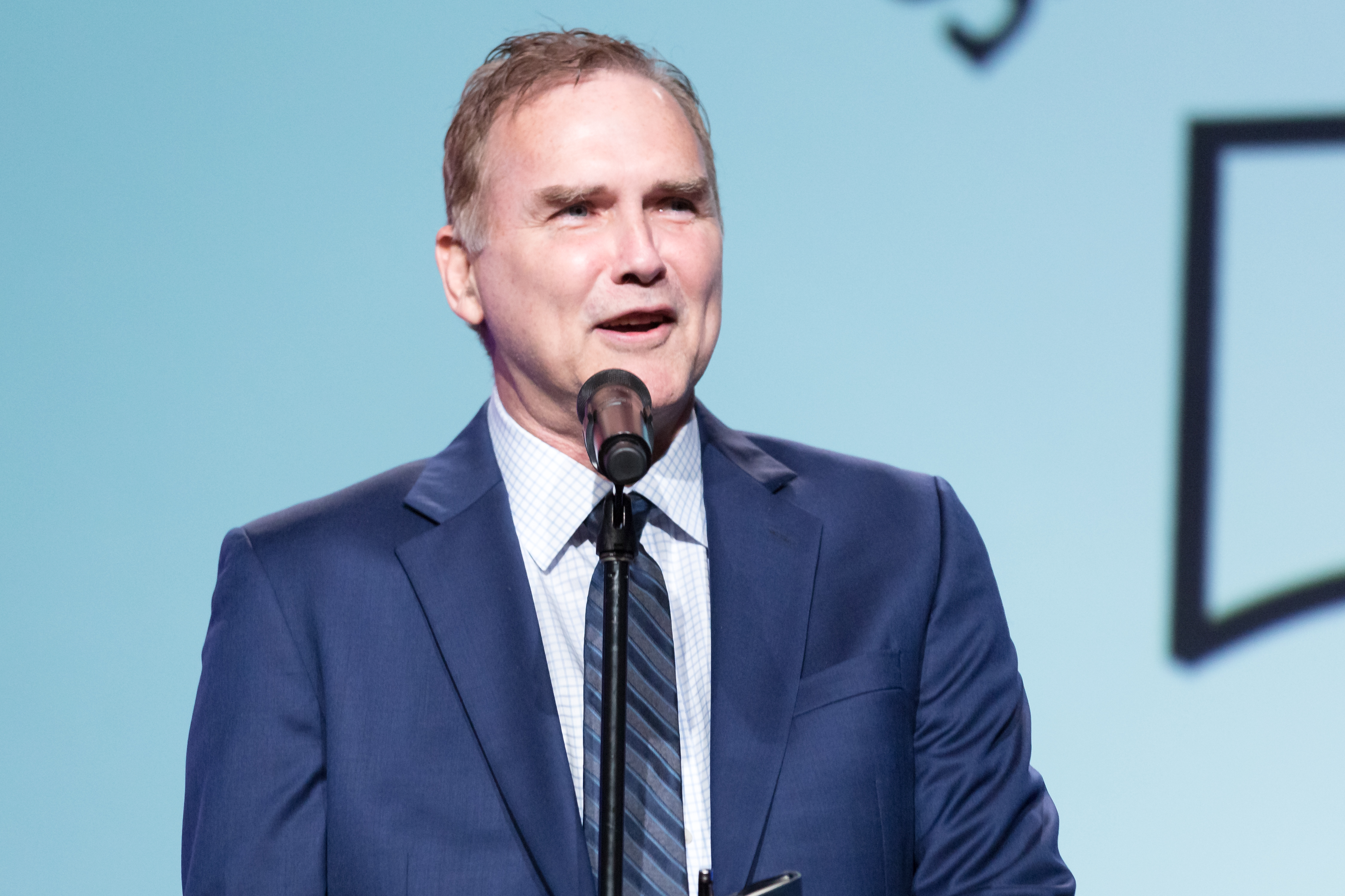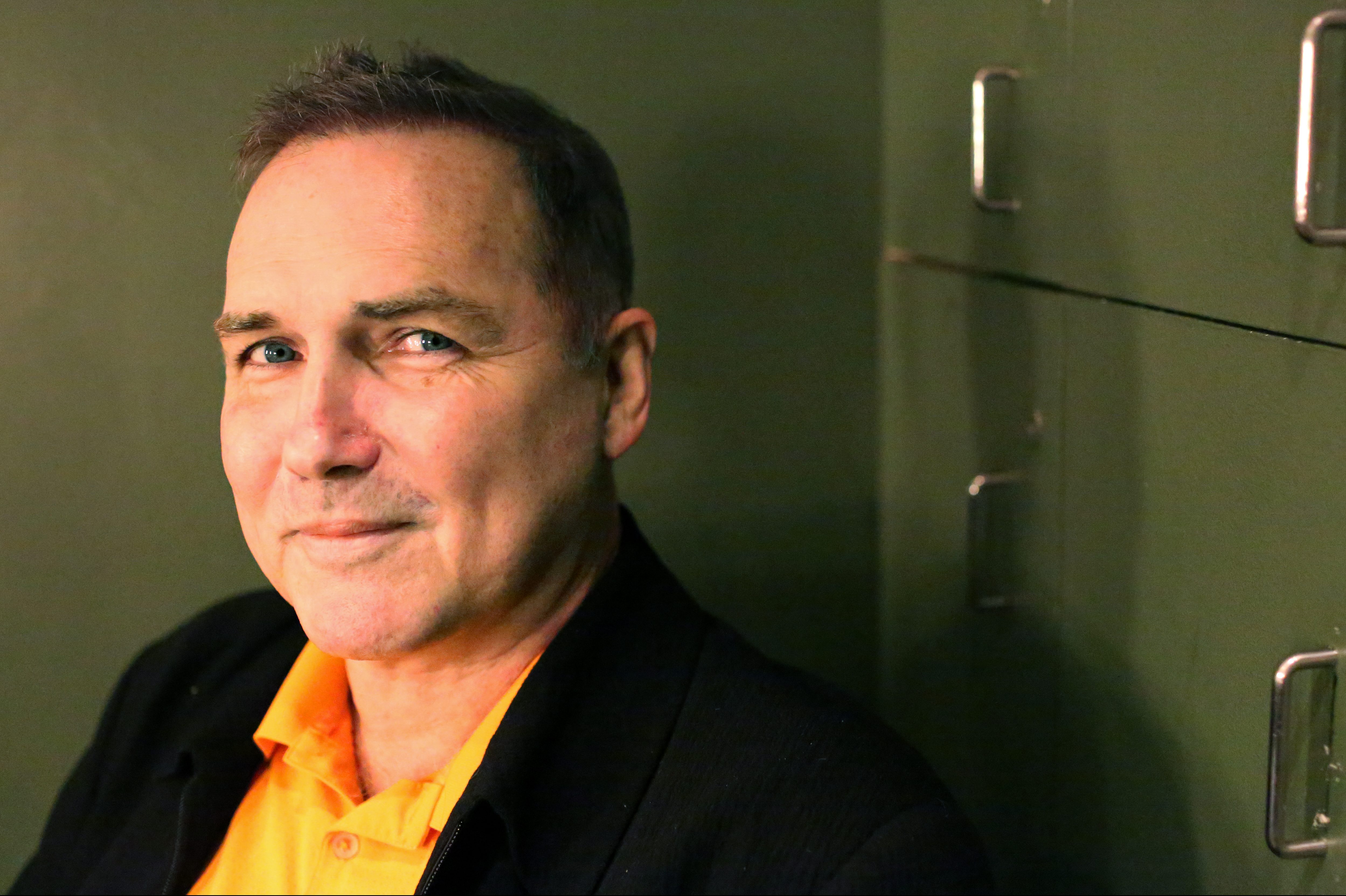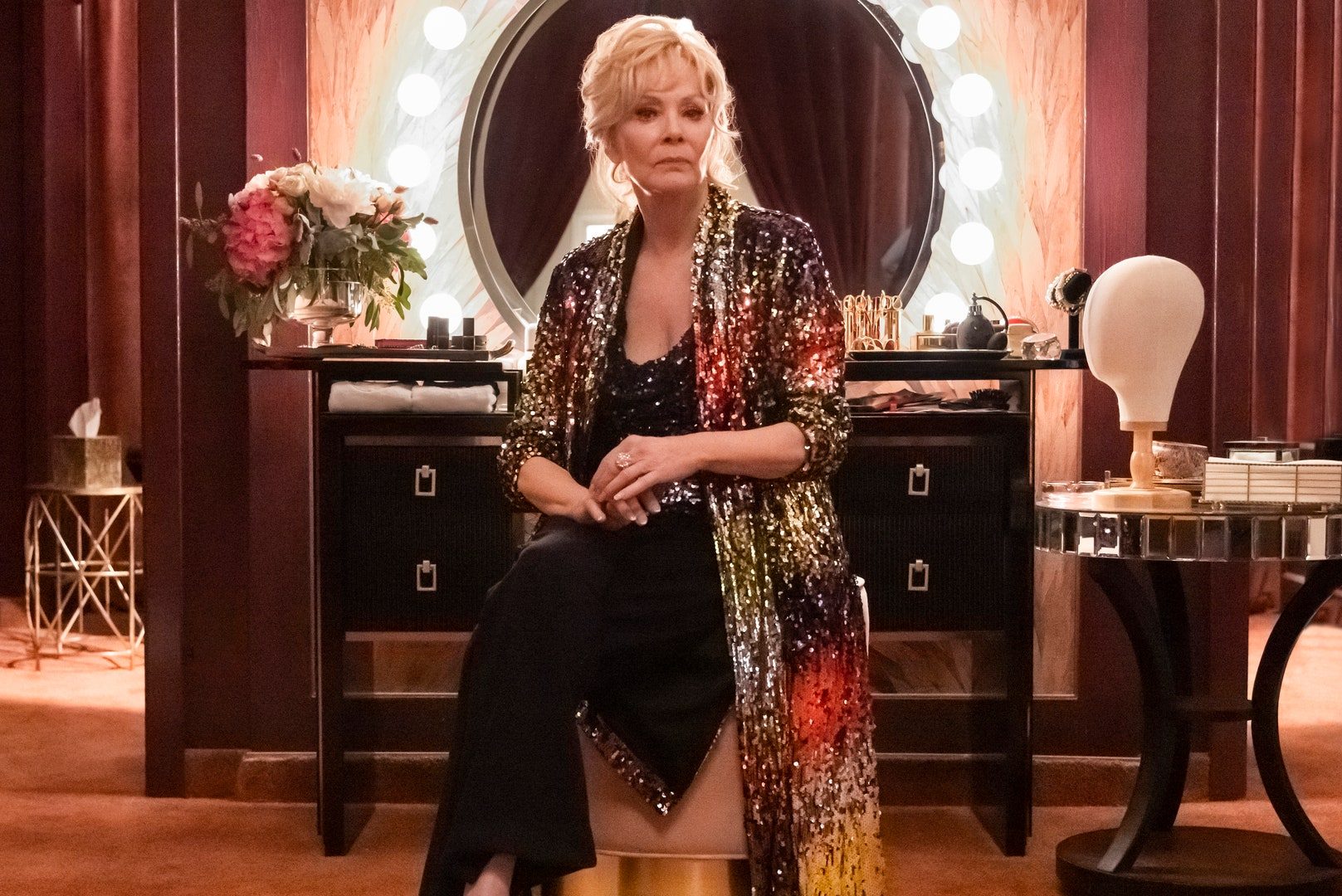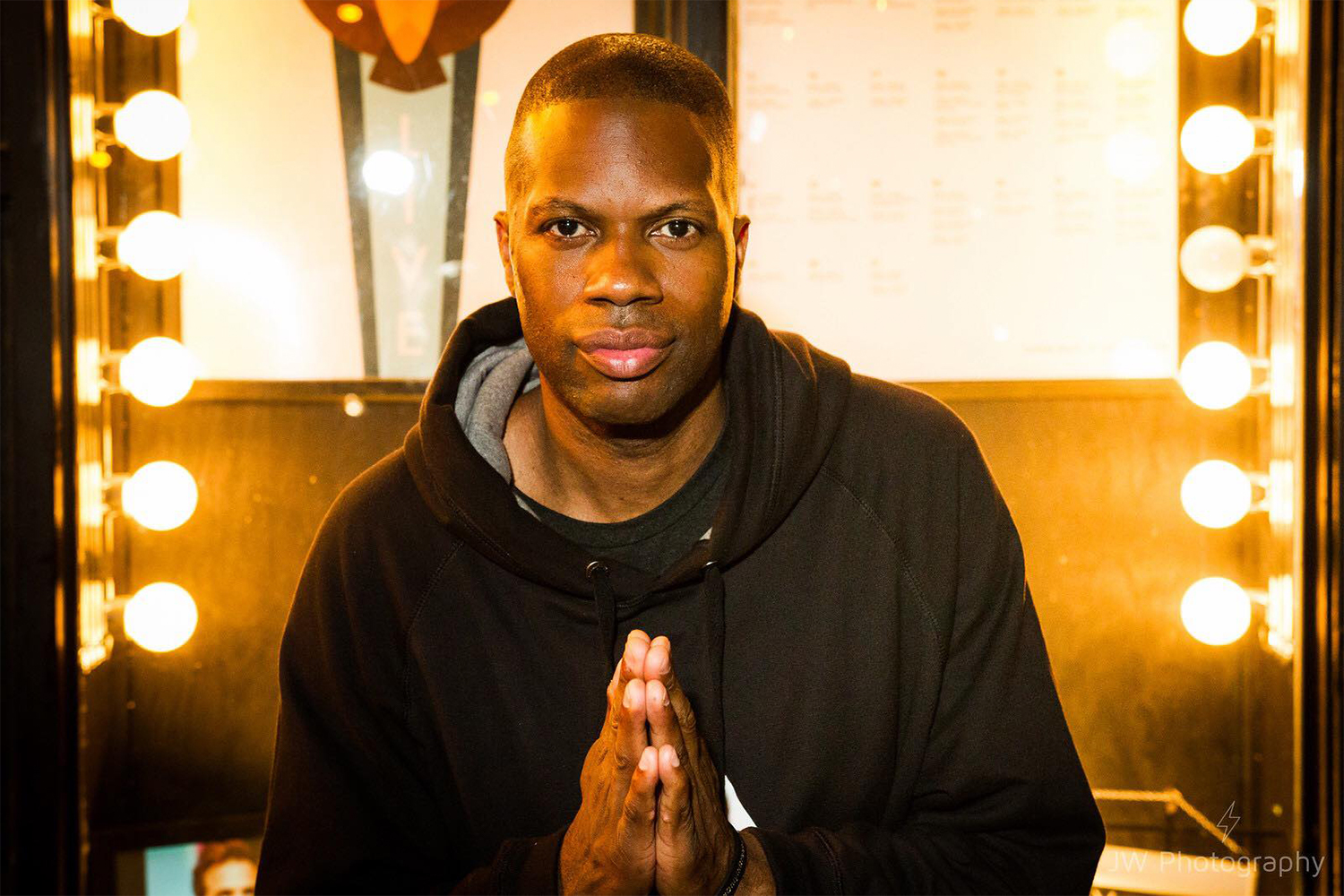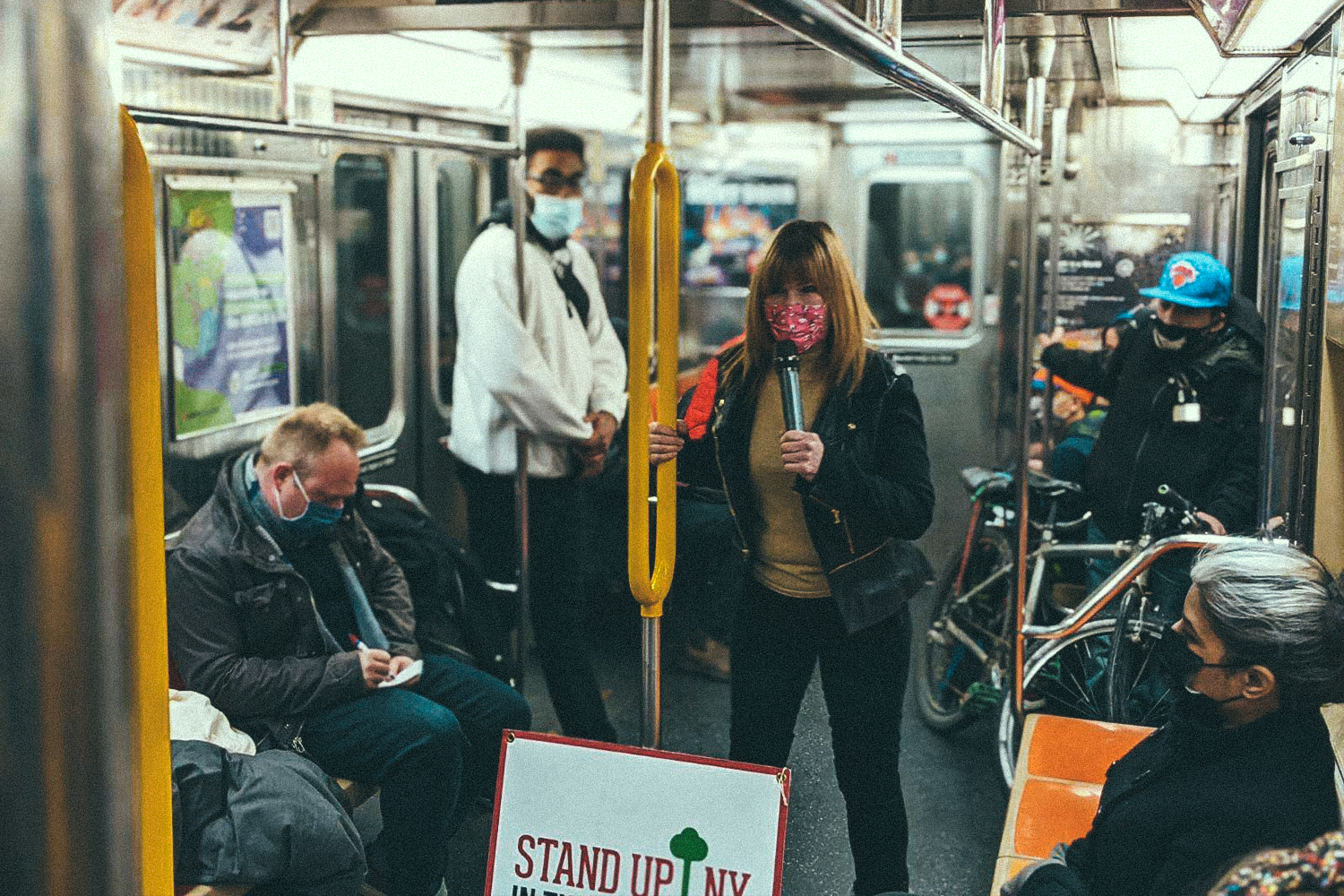To get Norm Macdonald was to love Norm Macdonald. And too few people got him.
There was the famous firing from Saturday Night Live because, as he told it, the president of NBC believed he wasn’t funny. A few months later, Dirty Work, the first film he helmed as a star, bombed at the box office. He tried TV again and again — and again — but nothing stuck for very long.
Washington Post headlines begged execs to give Macdonald another chance at a show. GQ lamented his “underrated” status. And a 2018 profile in the New York Times Magazine stated that throughout Macdonald’s career he’d “won a cult following.”
And on some level, for him, that was enough.
“He didn’t need everyone to love him,” says Clayton Fletcher, a fellow comedian and friend. “If you want to describe the millions of people that adored him and thought he was the best as a ‘cult’ then, OK, I guess we were a cult.”
Still, that Times piece said Macdonald held higher “comedic ambitions.” Those who worked closely with him on the stand-up circuit say that might have been true, but Macdonald refused to put in what he saw as, well, the dirty work.
“He didn’t care to do a whole lot of networking,” Fletcher says. “He didn’t want to have to put on a fake smile and give a fake handshake. Norm just wanted to be real. Always.”
Comedian Joe Stapleton, who frequently served as Macdonald’s opening act in recent years, says Macdonald had observed many of his stand-up peers blow by him in terms of popularity, while at the same time appearing somewhat content to stay behind so he could do “his own thing.”
“If he had wanted more mainstream success he could have had it,” Stapleton says. “He had opportunities to do other things and the way he chose to engage those opportunities wasn’t with the same sort of hunger that other people did, or the willingness to comply.”
Stapleton describes Macdonald as “a free spirit,” someone who “didn’t like deadlines and rules.”
Wedded to authenticity, Macdonald expressed equal zeal for finding the joke.
“Norm would make everything funny,” says Fletcher. “He would take something that was so small and find every angle to make you laugh about it again and again.”
Sean O’Connor, another comic who functioned on tours as Macdonald’s opener, wrote for Sports Show, the most short-lived of the TV Macdonald vehicles, surviving a whole nine episodes. Because Macdonald “loved jokes so much,” O’Connor says, in the run-up to episode tapings he would rewrite lines in the script that earned laughs during rehearsals.
“He was just like, ‘I’ve already told these jokes; I want new jokes to tell,’” O’Connor says.
The maneuver was arguably counterintuitive, as the purpose of rehearsing is to bring the best material to the taping. Furthermore, his writers were watching work that had proven effective fall to the cutting-room floor. O’Connor says no one minded, though, because Macdonald “was never wrong.”
“It wasn’t annoying because it was Norm,” O’Connor says. “Those jokes are so fun to write in his voice.”
It was a voice that may have been the most unique of its generation. If the great comics of any era approach their subject matter from out of left field, Norm Macdonald ranged the entirety of his own ballpark.
“People sounded like him, but he didn’t sound like anyone else,” says Mark Normand, a stand-up who calls Macdonald a “top-three” influencer on his own comedy. “He had a way of thinking that was so great for comedy.”
Normand cites Macdonald’s famous joke about a set of parents marching in a Pride parade with a sign proclaiming to be “proud” of their “gay son.” In the bit, Macdonald says that’s an “odd thing to be proud of,” because being gay isn’t “something you work all your life to be.” He imagines the dad in his office telling a coworker he’s proud his son not only went to Harvard and graduated first in his class, but that he also “loves cock,” devouring it constantly in his mouth and eagerly receiving it in his anus.
In Normand’s estimation, a lot of comics would back away from a joke like that because they don’t want to be perceived as a bigot.
“He’s not a bigot, but he was still like, ‘This doesn’t make sense,’” Normand says of Macdonald. “He could cut through that bullshit so well, that’s my favorite kind of comedy. Carlin could do that, too, but Norm kept it silly. Carlin was so serious all the time, that’s why Norm was the king.”
If coming up with one-of-a-kind, seizure-inducing jokes wasn’t enough to earn the adoration of his colleagues, his willingness to engage with them and help them get better as comics did the trick.
Ray Gootz, a comedian who once managed a New York club where Macdonald frequently performed, says the typical headliner who came through there would give staff instructions about the food they wanted to eat and how they wanted their merchandise sold, before indicating they should be left alone.
“Norm would want to talk to you,” Gootz says, “and ask you about yourself and tell you stories.”
Gootz says, for him, Macdonald recounted the time Sting hosted Saturday Night Live. Initially, everyone who worked on the show was excited. “Hey, Sting is here!” they shouted in revelry, according to the story Macdonald told Gootz. But by the end of the week, after the singer creepily asked each cast and crew member if they wanted to have sex with his wife, the mood turned sour when he showed up on set. “Oh God, here comes Sting,” they’d utter in disgust. (Gootz notes this story is far funnier when recited in Macdonald’s voice, the way he heard it.)
Both Stapleton and O’Connor say shortly after they met Macdonald, and seemingly with little knowledge of their stage capabilities, he approached them to go on tour with him.
“I immediately cared about him and he treated me like an equal,” Stapleton says. “[He] gave me a ton of stage time, had me do way more minutes than openers usually do, and we got to the point where he respected me enough where, on the flight home or the drive home, we would go over each other’s sets and he would ask me, ‘Where do you think I can improve?’”
O’Connor says Macdonald generously advised him on how he could trim the fat from his jokes. For example, he said O’Connor should cut out words like “probably” or “maybe” from bits, particularly in punchlines, in order for him to sound more “assertive” and “confident,” while giving the impression that he was “committing to the bit.”
“I immediately stopped doing that,” O’Connor says.
Macdonald didn’t shy away from fans either. He’d invite them to sit at the bar with him and watch a sporting event on TV, instead of being seated inside the club, as Gootz remembers. One of Stapleton’s jobs on tour was to make sure the fans Macdonald encountered in airports got free tickets to his performances.
Some in the comedy community thought Macdonald may have been a little too attentive at times; a couple of women tweeted charges of sexual harassment on the day news broke of his death. Controversy crossed his path in 2018 as well, when comments he made about the treatment of Louis C.K. and Chris Hardwick were perceived as a denouncement of the #MeToo movement. Macdonald also expressed sympathy for Roseanne Barr after she was fired from her own series for posting racially charged tweets. Macdonald later apologized on Twitter to those who’d felt he “minimize[d] the pain” of those in harm’s way of Louis C.K. and Barr. He also sought forgiveness on The View.
But it was Macdonald’s longtime producing partner Lori Jo Hoekstra who was with him when he died of cancer this week. And Washington Post arts reporter Geoff Edgers defended Macdonald’s statements about Louis C.K. and Barr, contextualizing them as a friend trying to help friends.
That was “the real Norm Macdonald,” to those who were around him often.
“I’m not a terribly successful stand-up right now if it wasn’t for the boost he gave me,” says Stapleton. “The guy I think might have been the funniest person of all time had me open for him and liked spending time with me, and if I never achieve anything more than that, that’s still a pretty great achievement.”
This article was featured in the InsideHook NY newsletter. Sign up now for more from all five boroughs.

